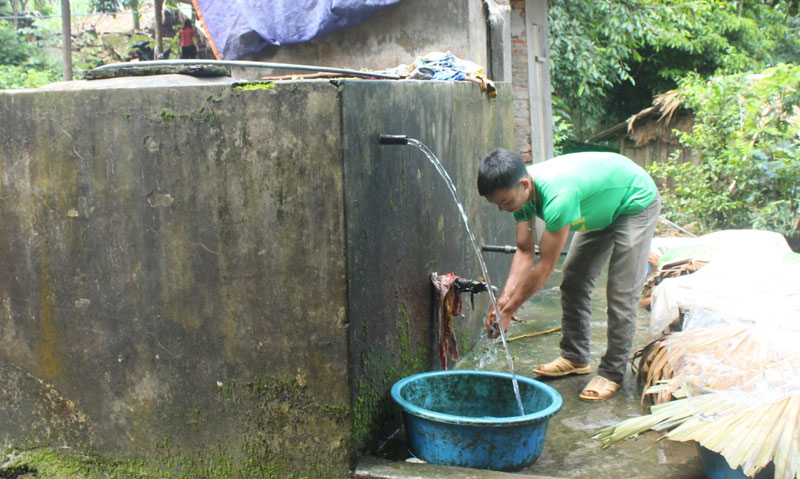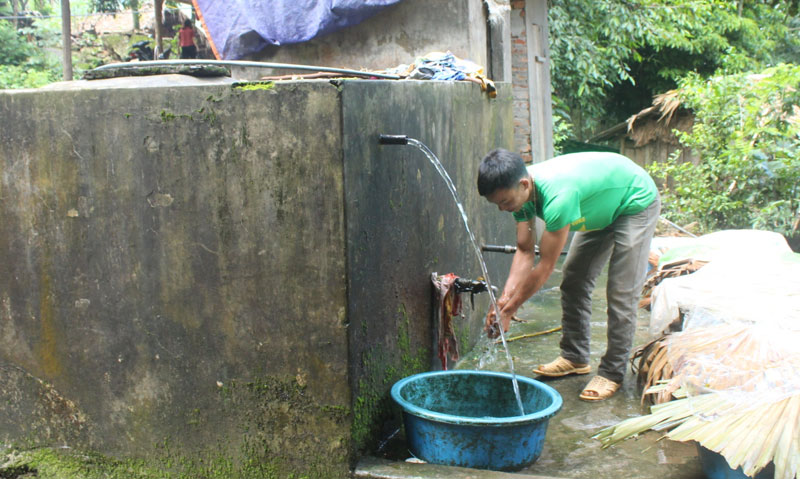
(HBO) - After more than 20 years of implementation in Hoa Binh province, Program 135 is assessed to clearly show the correct policy of the Party and State with extremely difficult areas, bringing effects. Program 135 has been supported by the people of Hoa Binh province.
Program 135 has improved the life of ethnic minorities in extremely difficult communes.
Ms. Dinh Thi Thao, Head of the Provincial Ethnic Committee, said: In the period of 2016 - 2020, Program 135 is one of the component projects of the Sustainable Poverty Reduction Program. At present, the whole province has 99 extremely difficult communes, specific communes and 99 extremely difficult hamlets subject to Program 135 investment.
Over the years, the program has contributed positively to the socio-economic development of extremely difficult areas in the province. By resources devoted to infrastructure construction and maintenance of works after investment. The training and capacity building for grassroots officials has been implemented as an important resource contributing to the socio-economic development of ethnic minority areas.
In the 2016-2020 period, the program was implemented with a total budget of about 687 billion VND. In which, investment capital was 519.74 billion VND.
Implementing the sub-project on supporting infrastructure investment, with a total capital of 519.74 billion VND from Central budget, local budget, integrated capital and people contributed, the province has invested in building construction of 3 transitional works, 918 new construction works.
Over the past 5 years, with a total capital of 106,467 billion VND for production development, it has helped over 50,000 households in the province to benefit from the support of plant varieties, livestock, feed, fertilizer... The program also supports machines and equipment; buildt breeding facilities; implemented 47 models of production development and organized for more than 3,000 people to visit and study production experience, vocational training.
In addition, Program 135 has opened 226 training courses for 13,272 turns of grassroots cadres.
It can be affirmed that the implementation of Program 135 has improved the life of ethnic minorities in extremely difficult communes, creating conditions to help these regions escape the situation of underdevelopment.
The emulation movement "Hoa Binh joining hands to build new-style rural areas” has been widely spreading, becoming a driving force that motivates the localities to renew rural landscapes and improve the material and spiritual lives of the residents. In this movement, the people play a central role-both as the main implementers and direct beneficiaries of its outcomes.
In response to the global digital revolution, Hoa Binh Newspaper is transforming itself into a modern and multi-platform media hub, blending cutting-edge technology with a restructured newsroom and a new generation of tech-savvy journalists.
Hoa Binh province’s Association of the Elderly recently held a conference to review the project on expanding the inter-generation self-help club model until 2025.
In a move to implement Resolution No. 57-NQ/TW, issued on December 22, 2024 by the Politburo, which targets breakthroughs in science-technology development, innovation, and digital transformation, the Hoa Binh provincial Department of Health has issued a plan to roll out the "Digital Literacy for All” campaign within the local health sector.
An Nghia Commune (Lạc Sơn District) is one of the communes that achieved the tha standard of the national new rural area in 2018. Entering a new development phase, the commune is now trying to meet the criteria for the advanced new rural development. With the strong political will and the public consensus, the commune is gradually overcoming the challenges to reach this goal, aiming for the sustainable development.



